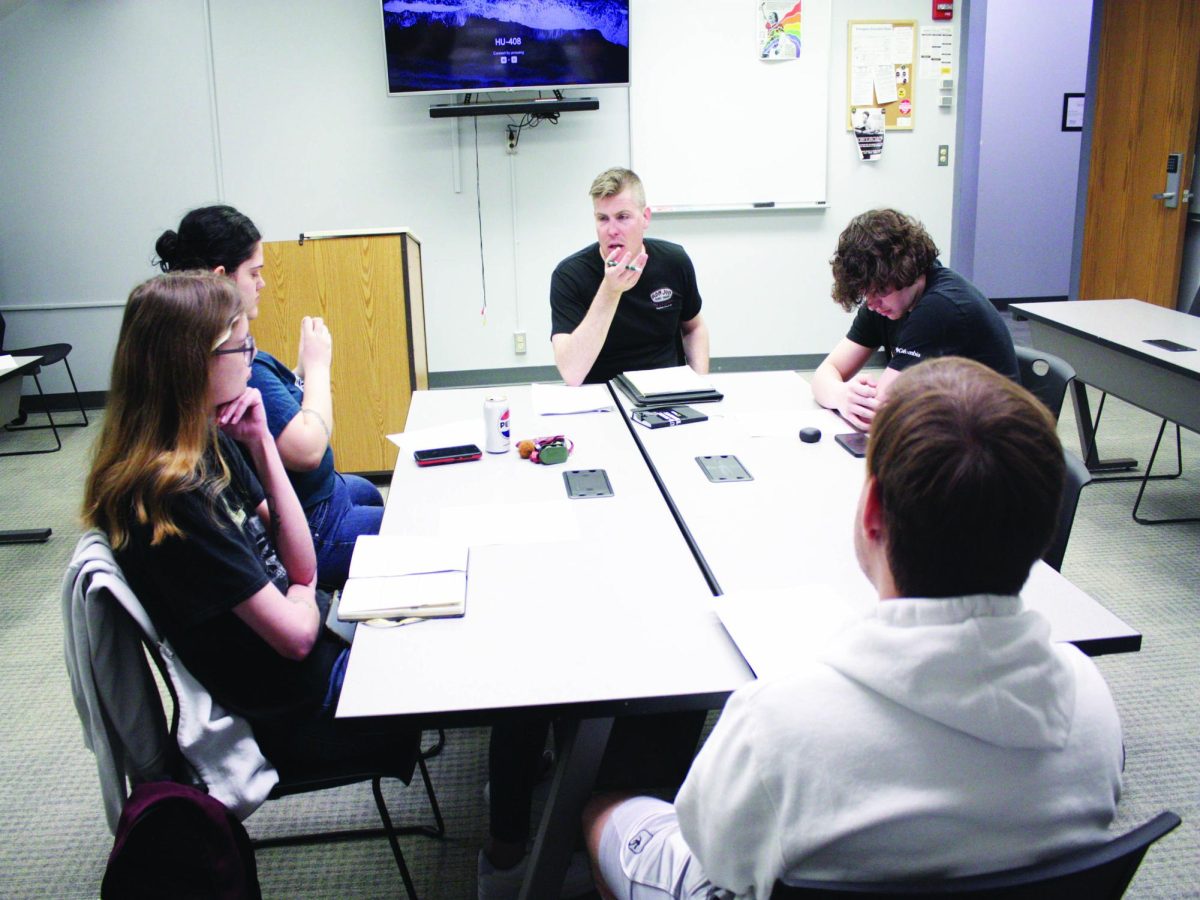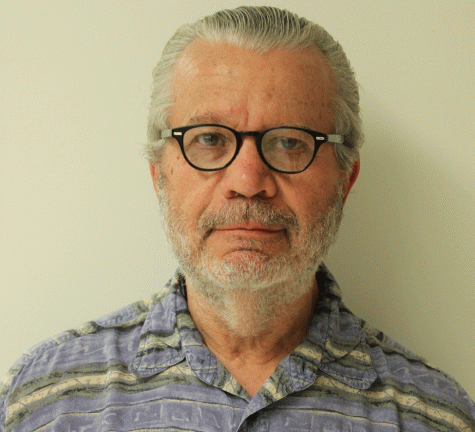Persons familiar with the situation say employees are afraid to talk
January 20, 2016
That editorial on the front page this week isn’t some production glitch. It’s supposed to be there.
Because there have been few sources who will go on record for an account of the Karen Walker hearing on Dec. 18 and WSC President Rames’ decision last week to confirm the psychology professor’s firing, we figured a front-page editorial was appropriate.
It’s unusual to use such a dramatic gesture to get attention, almost as rare as my writing for the Wayne Stater. The faculty adviser, I last published in the newspaper when I wrote columns five years ago from China, often reporting on bureaucracy, secrecy and fear.
Time to write again.
According to persons familiar with the situation, the president sent Walker a termination letter last Wednesday through email. Apparently, the two had never met. This happened even though, according to unnamed sources, Walker was never offered the same options made available to other professors who faced dismissal: treatment or counseling or whatever remedy might ward off the pink slip.
President Rames, midway through her first academic year at WSC, followed the recommendation of a four-person committee that, according to persons familiar with the situation, advised her to affirm the Walker firing by Dr. Michael Anderson, Vice President of Academic Affairs, on Oct. 6.
See where I’m going with this?
Absent named sources who are afraid for their jobs—and rightfully so, after a tenured professor here for 18 years lost her job after losing her temper with Anderson, who has since resigned—the Wayne Stater is reduced to quoting “persons (or a person) familiar with the situation,” a practice regularly used for protection by high-level government sources.
In the hierarchy of attribution, that’s better than “declined to comment,” which we’ve had a lot of this fall.
Yes, there’s a contractual process for dismissal, and it’s in place to protect all the principals involved. We have to have rules that don’t always include transparency. A small college like ours is like a large family—resentments bubble over and often are maintained for years.
The campus family requires at least a minimal bureaucracy with such provisions as privacy measures that allows us to get through the day, in some cases, without strangling one another.
But we need to know that, according to persons familiar with the situation, almost a dozen faculty members, alumni and students asked to testify on Walker’s behalf were not allowed to do so because of legal counsel to the committee. The two-day hearing, curiously scheduled to finish up on the same afternoon as graduation, was by all accounts (unnamed, of course) a clandestine affair that held all the earmarks of a criminal trial.
Lawyers were transported in vans to Network and Technology Services, and the doors were locked.
(Halfway through this column, I realize students have not been mentioned much. That’s because the “process” that forbids transparency and hinders the campus newspaper from reporting on fired professors mostly doesn’t involve students, though those in journalism are getting some real-world education).
The process doesn’t even protect the faculty, who are increasingly afraid to speak to one another outside of meetings.
“If professors were fired for yelling at one another during department meetings, many of us would have been fired long ago,” said one person familiar with the situation.
The process instead protects the process.
How did we get to this place?
“[The NSCS] was more loosely-coupled than at present, placing closer to the confederation than the federation pole of the governance spectrum,” concluded an outside report submitted in 1997 entitled “A System in Progress: Consolidating The Nebraska State College System.”
“It was on the order of an association of institutions in which significant portions of the board’s authority was directly or indirectly delegated to the member colleges,” the report said about life in the NSCS in the early 1990s.
My golly. That was well before the state college system hired as its executive director Stan Carpenter, who has been exceedingly efficient at consolidating power in Lincoln.
Today, our campus lives are often swamped with the power of the Lincoln systems office. That power manifests itself through Human Resources, which has increasingly taken autonomy and power away from faculty and staff.
I served on a hiring committee last fall composed of three faculty members with almost a century’s worth of teaching experience. Until we raised some hell, an HR employee who wasn’t alive when any of us began teaching decided who was appropriate in the candidate pool.
This encroaching power from the NSCS has created an atmosphere that makes reporting news difficult. Elsewhere on the opinion pages, you will find a letter from a disgruntled reader who hasn’t liked our Walker coverage. We wouldn’t normally publish a letter sent from an anonymous email server, but that’s how far we’re willing to go to present a different perspective. Any perspective.
Do I fear for my job? State college faculty have been fired for saying a lot less than I am here. Several years ago, the newspaper adviser at Peru State College was canned by its president because of sports reporting he didn’t like. I’m sure glad I didn’t get that job—the woman who was fired was the other finalist.
Instead, I happily took a position here, where I’ve been grateful daily for 14 years for the latitude permitted to do my job.
The U.S. Constitution says something about that too.
Sure, there’s often grumbling about what we do from Hahn, particularly with our vigorous coverage of the NSCS in the past year.
But depending on Facebook posts and persons familiar with the situation is a heckuva way to practice journalism.
(McElwain is a professor in in the Department of Communication Arts and faculty adviser to the Wayne Stater.)







